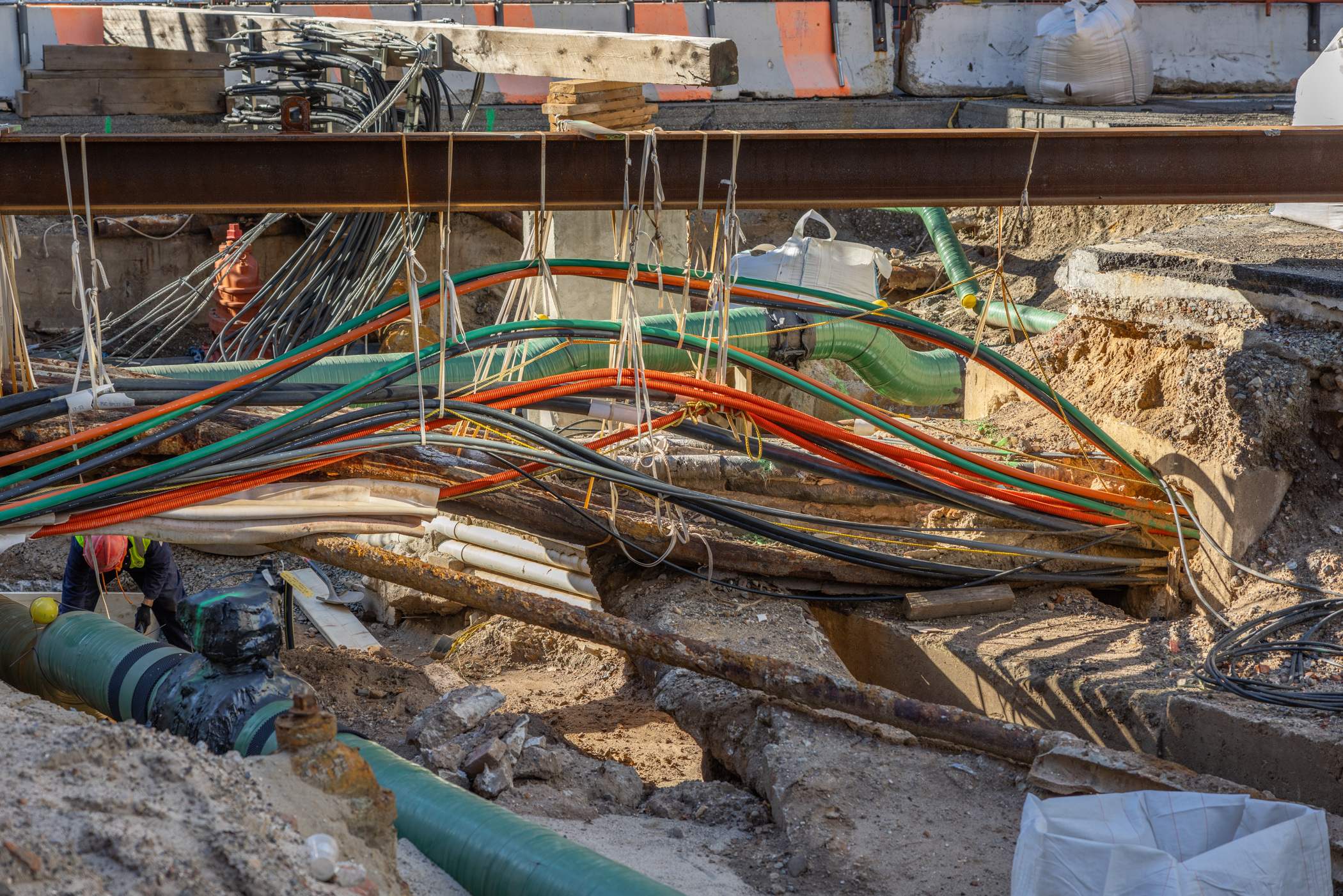
 Department of Design and Construction311
Department of Design and Construction311 Search all NYC.gov websites
Search all NYC.gov websites
Joint Bidding in NYC
Upgrading New York City’s infrastructure is an urgent task. It often requires relocating the utilities already underground. Joint Bidding allows the City to bid project and utility work together avoiding yearslong delays. All City and private utility work are bundled into one contract held and managed by the City. The utilities reimburse the City based on a public price list used by every bidder. The result is a level playing field with fewer delays and lower costs for everyone.
Joint Bidding was first written into law in 2004, and the current authorization sunsets in 2024. It needs to be reauthorized for effective delivery of essential public infrastructure in NYC.

Benefits of Joint Bidding
Utilities and public infrastructure are co-located beneath city streets
Sewer and water mains run under city roads alongside private utilities like gas, electrical, and telecommunications lines. At the start of a construction on an infrastructure project, the first dig into the roadway is to locate the existing private utilities. These utilities are frequently uncovered as a tangled and jumbled mess, since they were added under the street over many decades. Private utility companies are required to relocate their lines to make room for new water mains and sewers, which requires coordinating with the City contractor.
Coordination between contractors and private utilities can get messy
Before Joint Bidding, utility companies had no other feasible option but to hire the firm performing the underlying City construction project and negotiate directly for the price of the work after construction had begun. The City’s contractors, aware of the utilities’ position, could demand steep prices for utility interference work. This resulted in lengthy deadlocks, during which dug-up streets remained open, construction stopped, and the City had no recourse to advance the project. The City’s public works projects remained stalled for months and sometimes years, draining taxpayer dollars and impacting communities
Joint Bidding speeds the process and saves years on projects
The City addressed the problem of lengthy standoffs by bidding the public work and utility interference work in a single contract, a practice known as Joint Bidding. Under Joint Bidding, the private utility companies are required to conduct pre-engineering before the project is bid and construction begins. They are responsible for both the cost of the utility work and a portion of the shared costs at a predetermined amount, taking individual utility-contractor negotiations out of the equation. The result is a fair, transparent, and consistent process that speeds construction of critical infrastructure.
Joint Bidding works for our partners
Now in its fifth iteration, or “Joint Bid 5.0,” the process includes a fixed price list for utility work to be performed by the City contractor doing the infrastructure work. To generate its price list, the City analyzed thousands of previous contracts and bids. The City also monitors market conditions and changes its Joint Bidding price list based on documentation submitted by contractors showing their costs. DDC makes regular updates to its Joint Bidding approach using input and data from contractors.
Joint Bidding Increases Competition and Lowers Costs to Taxpayers
From 2023-24, DDC received an average of nine bids for each of its Joint Bidding contracts — twice as many as were received for projects with utility interference that did not use Joint Bidding. Nearly half those bids came in under estimate.
Joint Bidding Helps Small and M/WBE Firms Compete for Contracts
By eliminating closed-door, private negotiations, Joint Bidding levels the playing field and allows smaller firms and M/WBEs to compete and win contracts. Bids are fair, prices are transparent, and projects move faster—allowing contractors and their teams to get the job done and compete for more work.
Authorized by state law since 2004, Joint Bidding must be reauthorized in 2024 for the City to continue using this essential tool.
Read more about Joint Bidding
- 2024 Legislation: Reauthorize Joint Bidding
- 2024 Legislation: Joint Bidding Fact Sheet
- 2024 Legislation: Joint Bidding Coalition Letter to State Leaders
- 2023 Court case affirms that Joint Bidding is legal: NY Supreme Court - Joint Bidding
- 2024 Appeal to NYS highest court denied: NYS Court of Appeals
- What's new with Joint Bidding: Joint Bidding 2024 Update
- Joint Bidding Data: 2024 Bid Data Analysis
- DDC Joint Bidding Contract Language: Joint Bidding 5.0

